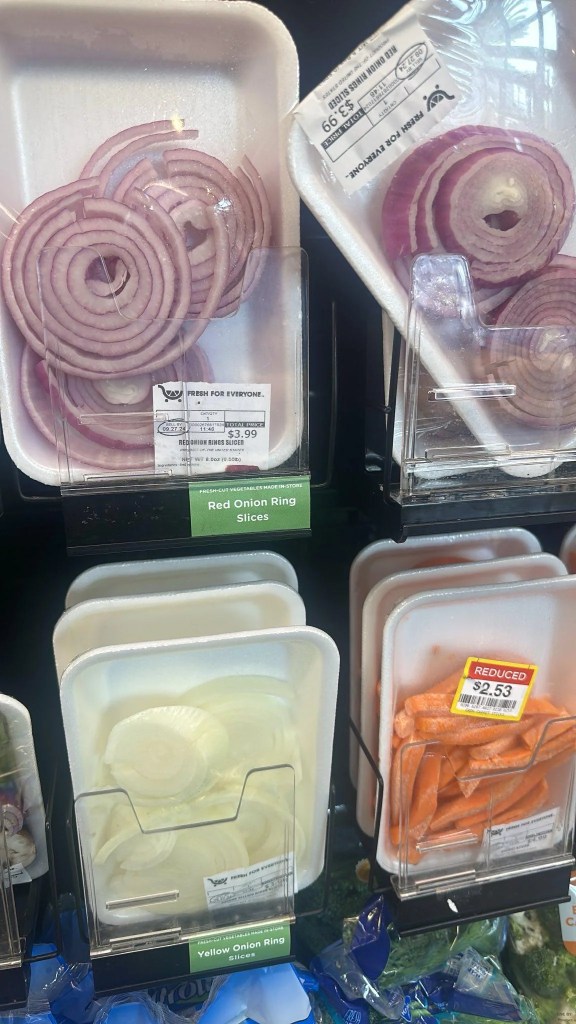A Reddit post has stirred up conversation about the actual cost of convenience foods.
A user shared a photo from a local Kroger grocery store, identified by the "Fresh For Everyone" slogan and logo on the packaging, showing pre-sliced, pre-packaged red onions priced well above the cost of a whole onion, sparking discussions about food waste and excessive packaging.
What's happening?
The image, shared to the r/mildlyinteresting community, shows the packaged red onion slices priced at $3.99, while whole red onions typically cost less than a dollar each. Also shown in the photo are yellow onions and carrots packaged the same way.
"A quarter of red onion sliced up is 5 times the cost of a whole red onion," the OP wrote above the photo.
This pricing disparity quickly caught attention, with one commenter stating, "Replacing an onion skin with landfill rubbish is criminal."

Why is this packaging practice concerning?
The trend of pre-cut produce raises important questions about sustainability and consumer habits.
While convenient, these products often come with a hefty environmental price tag alongside the higher cost, which offsets the superfluous packaging cost. The extra plastic packaging contributes to our growing waste problem, potentially ending up in landfills or polluting our oceans.
Pre-cut produce also spoils faster than whole vegetables, increasing food waste. This is particularly concerning given that an estimated 30–40% of food in the United States already goes uneaten, according to the USDA.
The energy required to process, package, and transport these pre-cut items also adds to their carbon footprint. When multiplied across thousands of stores and millions of consumers, the cumulative impact on our planet's resources and climate becomes significant.
Is Kroger doing anything about this?
Kroger has made some strides in sustainability.
The grocery store chain plans to eliminate plastic bags from its stores by 2025 and divert 95% of waste from landfills by 2030. Offering heavily packaged produce items seems at odds with these goals, though.
It's worth noting that pre-cut produce can be valuable for some consumers, including elderly or disabled individuals who might find food preparation challenging. However, the excessive pricing and packaging of these items raise questions about whether more sustainable solutions could be found.
What can I do to stop this packaging practice?
While it's easy to point fingers at corporations, individuals also have a role in reducing waste.
Opt for whole produce when possible. It's usually cheaper and stays fresh longer. If you find chopping onions challenging, consider investing in a kitchen gadget like an onion chopper.
Plan your meals to use perishables efficiently. This reduces food waste and saves money. You might even discover new recipes that use every part of the vegetable.
When you buy packaged produce, look for options with minimal or recyclable packaging. Some stores are experimenting with compostable produce bags or reusable containers.
Advocate for change. Let your local Kroger know that you'd prefer more sustainable options. Many stores are receptive to customer feedback and might consider alternatives, such as loose pre-cut produce sections where customers can use their own containers.
Join our free newsletter for good news and useful tips, and don't miss this cool list of easy ways to help yourself while helping the planet.









